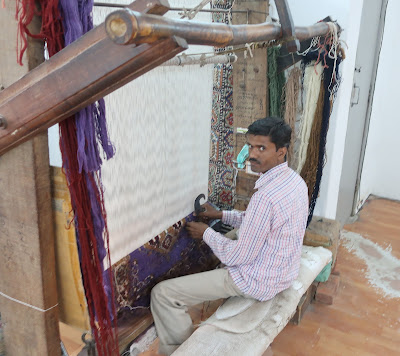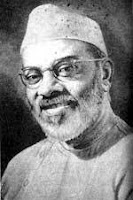Why should
you care about the economic opportunities available to the people of Papua New
Guinea? Perhaps some readers didn’t even
know the location of Papua New Guinea (PNG) before looking at the accompanying
map.
There is a
lot to be said for the view that the people of PNG should be left to solve
their own problems for themselves. However, one of the problems the people of
PNG need to solve is how to reduce their dependence on foreign aid. Another
problem they need to solve is how to cope with living in a part of the world in
which China and the United States are increasingly competing for influence.
Joe Biden,
the president of the United States is to visit Port Moresby, the capital of PNG, on May 22 for discussions with Pacific Island
Forum members, while on his way to Sydney for a Quad meeting.
My personal
interest in the economic opportunities available to people in PNG stems from
having worked there as a consultant on economic policy, having visited as a
tourist on several occasions, and not least, from having relatives who live
there. I maintain an interest in economic and social development in PNG and have
written about it on this blog in the past (here, here, here, and here).
In this
article I suggest that opportunities for human flourishing in PNG are less
promising than recent macroeconomic indicators might suggest. After considering
some macro-economic indicators, I briefly discuss population statistics, corruption
and profligacy, the law and order problem, poor opportunities for young people,
and lack of economic freedom.
Macro-economic
indicators
The World Bank’s latest
Economic Update paints a fairly rosy picture, with economic growth of 4.5 percent
for 2022. Government revenue from mining and petroleum taxes surged (reflecting
the impact of Russia’s invasion of Ukraine on natural gas prices). The
increased revenue led to a reduction in the fiscal deficit. The magnitude of
public debt remains a problem, with interest payments exceeding public spending
on both health and education.
Inflation at around 6 percent per annum is not unduly high
by comparison with other countries, but rising food prices have made life
increasingly difficult for many people in urban areas. Foreign exchange
rationing, associated with pegging of the Kina against the USD, has been a
hindrance to business.
Population
statistics
I mention
population statistics mainly because questions that have recently been
raised about the
reliability of official estimates of the population illustrate the existence of
deep-seated problems in public administration. The official estimate of
population for 2022 is between 9 and 11 million. However, a leaked UN report
has suggested that the population could be as high as 17 million. In this
instance, the official estimate seems more likely to be correct. However, the
last credible census took place 20 years ago, so no-one really knows the size
of the PNG population.
It is widely
accepted that the population of PNG has been growing rapidly and that the
majority of people are relatively young, probably under 25 years old.
Corruption and profligacy
Corruption is still a major problem in PNG, although there seems
to have been some reduction over the last decade. Of the 180 countries included
in the Corruption
Perceptions Index, only 50 were rated as more corrupt than PNG in 2022.
Profligacy in spending of public money by some government
ministers is legendary. For example, in 2018, when PNG hosted the APEC summit,
Justin Tkatchenko attracted controversy by purchasing 40 custom-made Maserati
luxury cars. He claimed that they would sell like hot cakes after the event.
Unfortunately, that didn’t happen. More recently, the same minister again
attracted criticism for taking an overly large contingent of people with him,
at public expense, to the coronation of King Charles III. It was his
intemperate response, labelling critics as “primitive animals”, which eventually
led to his resignation
from the position of Foreign Minister.
The law-and-order problem
There has been a law-and-order problem is PNG for many
years. In 2015 I wrote:
“It is unsafe for tourists to walk around most parts of Port
Moresby alone except within the boundaries of major hotels, modern shopping
malls and other locations where security is provided. The same applies to local
residents. Tourists are more fortunate than most of the locals because they can
afford to be transported safely from one secure area to another.”
It is particularly unsafe for women and girls to be in
public places. A recent article on DEVPOLICYBLOG
by Sharon Banuk, a university student, describes the nature of the problem that
she has faced in staying safe.
PNG is ranked second, behind Venezuela, as the country with
the highest number
of reported crimes per 100,000 people. The ranking of PNG seems to have remained
the same since 2017, having risen from 16th place in 2015.
Poor economic opportunities for young people
The law-and-order problem has been linked to the increasing
problem of youth unemployment in
an article by Ms.
Julian Melpa for the National Research Institute. A
recent
study found 68 per cent of people aged between 14 to 35 in Port Moresby
were unemployed. Even people with tertiary qualifications often find it
difficult to obtain employment.
The difficulty of finding employment is illustrated the
accompanying photo of job seekers, published with a report in The
National newspaper on Feb 6, 2023. The crowd were competing for
a few advertised vacancies at a hotel in Port Moresby.
Lack of economic freedom
International agencies tend to label the main deficiencies in economic freedom in countries like PNG as governance problems. That
labelling may make their advice more palatable to politicians who have
ideological hangups about free markets but it obscures the adverse impact of
lack of economic freedom on incentives to invest, innovate and create greater
opportunities for human flourishing.
Only 36 of the 176 countries included in the Heritage
Foundation’s index of economic freedom have a lower ranking than PNG. A
similar picture emerges from the Fraser
Institute’s economic freedom ratings. Only 43 of the 165 countries included
in the Fraser index have a lower economic freedom rating than PNG.
PNG has particularly low ratings for rule of law (covering
property rights, judicial effectiveness, and government integrity) business
freedom, and investment freedom.
PNG governments have obviously been having major problems in
performing the core functions of government in protecting natural rights of
individuals to be safe and have opportunities to flourish. Governments face a
formidable challenge in protecting economic freedom in PNG, with most of the population
living in village communities and having little contact with the market economy.
However, similar challenges face governments in some other countries.
Some African countries which face similar challenges now seem to be performing
better than PNG in facilitating growth of economic opportunities.
PostscriptReaders who are interested in a more comprehensive picture of the well-being of people in PNG should visit the
relevant country site of The Legatum Prosperity Index. For the purpose of the Legatum index, prosperity is defined broadly as occurring "when all people have the opportunity to thrive by fulfilling their unique potential and playing their part in strengthening their communities and nations".
My article mentions a visit to PNG by Joe Biden, which was scheduled for May 22. Unfortunately, this visit will not occur as planned because he has given higher priority to political negotiations over the U.S. government debt ceiling.













